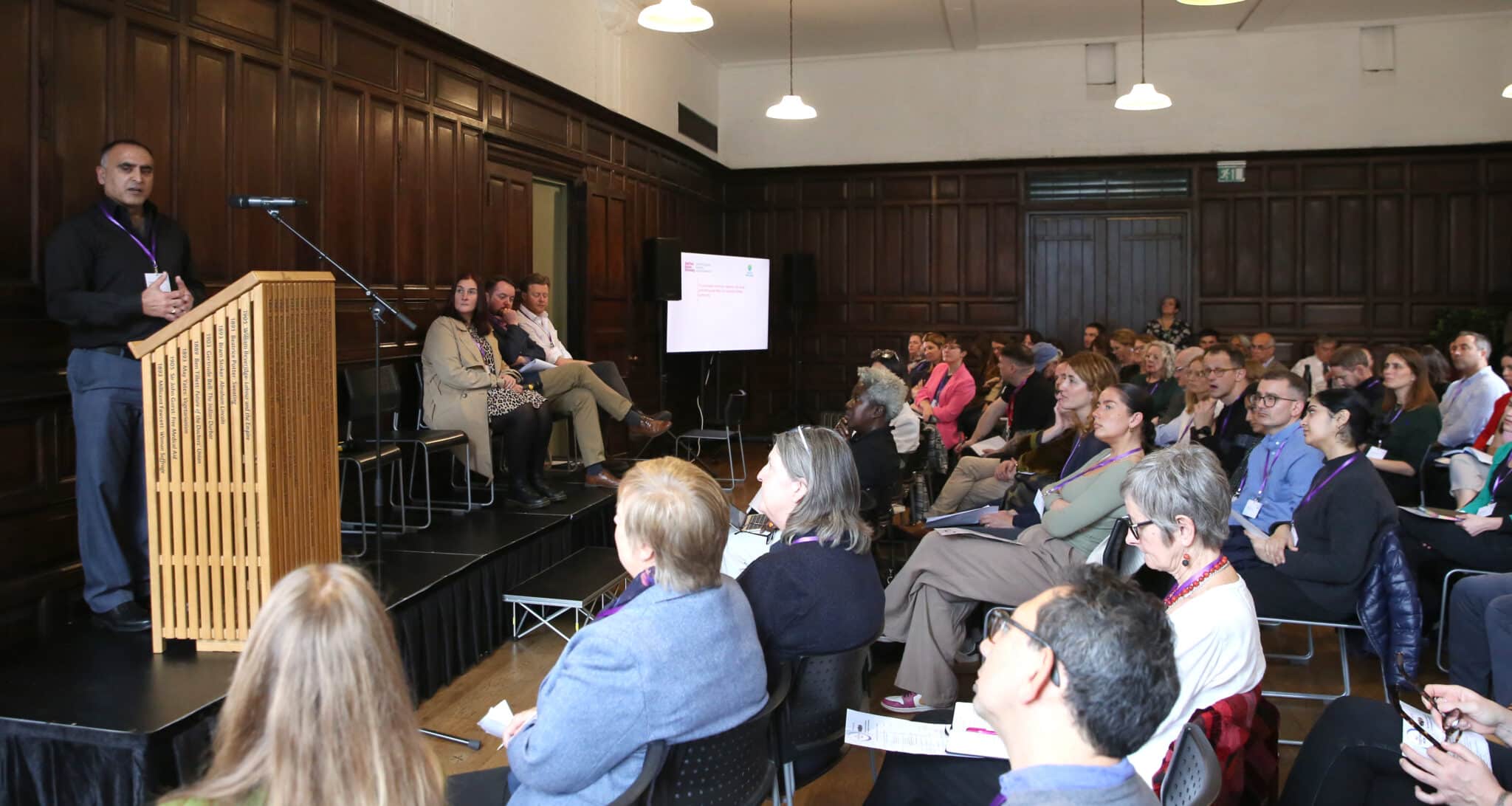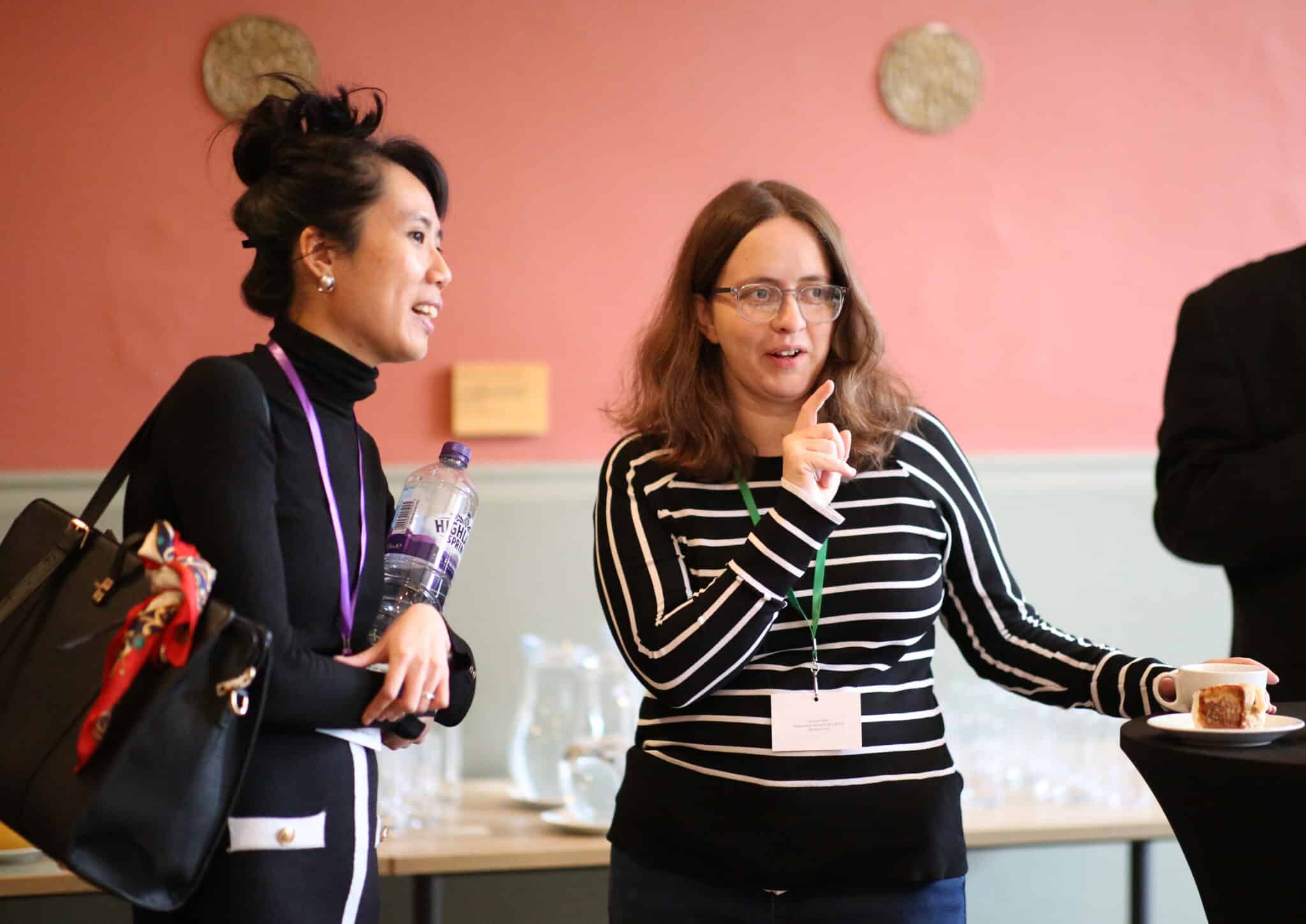All Together for Community Connectedness: How research strengthens social connection
Professor Sarah Pearson, Director of the Centre for Collaboration in Community Connectedness, reflects on the recent conference ‘All Together Now’ and looks to the future of social connection.
Launching a new research centre
I was delighted to join colleagues for the launch of The Centre for Collaboration in Community Connectedness (C4) at our conference ‘All Together Now’ at Toynbee Hall on Wednesday 5 November. The Centre brings together researchers, practitioners, policy makers, funders and residents to pursue an ambitious vision for better connected communities across the UK.
Connected communities are those where people feel a strong sense of belonging, trust local institutions, and have access to spaces, opportunities and resources that help them build meaningful relationships.
The day was filled with thoughtful conversations, inspiring connections, and a real sense of momentum. The Centre is launching at an exciting time with the Pride in Place Programme and the Community Wealth Fund signalling a renewed commitment to empowering local people, investing in social infrastructure, and building stronger communities. We can play an important role in supporting these initiatives and others, by developing and sharing ‘what works’ evidence, drawing on learning from earlier programmes with similar objectives such as Big Local and the New Deal for Communities, and helping to share and elevate learning from the rich landscape of community-led action across the UK.

Waqas Hameed speaks at the All Together Now conference. Photo: Local Trust/James O Jenkins
Driving social innovation through research
The event reinforced the need for research that enables communities to build and sustain social connection. Across the country, many people face rising isolation, loneliness, and worsening physical and mental health. Communities are also grappling with reduced cohesion and deepening poverty.
In hard times such as these, strengthening the social fabric of communities has never been more important. Evidence shows that strong social connection reduces the risk of chronic illness and boosts feelings of hope, belonging and trust. Research on social capital also demonstrates how communities with high levels of connection can mobilise collective action and drive local economic benefit.
The Centre for Collaboration in Community Connectedness will conduct new research on the factors that support connectedness across different places and contexts – critically understanding the ‘how’ as well as the ‘why’ of social connection. But our mission is not just to interpret the world; through the Centre, we are also intent on driving change.
Throughout the day, community partners shared examples of community-led research that have built capacity, strengthened relationships and increased trust. We explored how research can spark innovation in policy and practice.
We also learned how research can lead to innovation in policy and practice. An example is the Community Needs Index, developed by Local Trust and OCSI as a measure of social and cultural infrastructure which has informed the Pride in Place programme. We explored practical strategies from the Heston West Big Local partnership for delivering spaces, activities and events that can support positive neighbourly relationships, in addition to a practical framework for measuring the value of social and cultural infrastructure, developed by the Bennett School of Public Policy.

Photo: Local Trust/James O Jenkins
Communities at the heart of research
Too often, communities experience research as done to them, not with them, and they don’t benefit directly from the outcomes of the research that they have contributed to. The Centre places communities at the heart of the research process. Our community partners are involved throughout: from leadership to developing and sharing practice on the ground. Our Centre partners The Brixton Project, Market Development Association, Black Mountains College, Clackmannanshire Third Sector Interface and Darnall Wellbeing are each leading a place-based ‘community catapult’. These collaborations accelerate the application of research and support the development and scale‑up of community‑driven solutions.
At the conference, The Brixton Project showcased their Community Research Exchange which brings residents, cultural practitioners, decision‑makers and funders together to build shared narratives through community‑led research. The Market Development Association shared how their collaboration with Queen’s University Communities and Place has fostered the development of co-produced research and evidence-based solutions to local challenges, and Darnall Well Being told us how their partnership with Sheffield Hallam University had supported community researchers from diverse backgrounds to co-produce culturally sensitive approaches to health and wellbeing needs.
Telling these inspiring stories is an important mechanism for sharing learning on what works and encouraging us to see things from different perspectives. As the work of the Centre develops, we hope to shine a light on many more examples of how social research can help to build social connection and community infrastructure and can lead to practical and positive changes.

Photo: Local Trust/James O Jenkins
Looking to the future
We closed the day by exploring some future scenarios of social connection, guided by The Young Foundation and their Futures Toolkit approach.
Participants discussed contrasting visions, from government‑mandated social connection metrics and democratic enclaves, to AI‑mediated interaction with radically devolved hyper‑local economic models.
While some scenarios felt utopian or dystopian, each contained elements of emerging reality. Exploring these futures helps us identify what evidence and action are needed now to support hopeful outcomes and avoid harmful ones.
C4 will return to these futures in 18 months, grounding them in the lived experiences of communities.
The conference marked the beginning of what we believe will be a transformative journey. Thank you to everyone who took part, we look forward to sharing more learning, stories and opportunities for collaboration.
Keep updated and in touch via C4’s social media and website here, or sign up to our newsletter.
References:
Haldane, A., & Halpern, D. (2025). The Hidden Wealth of Nations. Local Trust. (Accessed 21 November 2025) https://demos.co.uk/wp-content/uploads/2025/01/Social-Capital-2025_The-Hidden-Wealth-of-Nations.pdf
From Loneliness to Social Connection: Charting a Path to Healthier Societies. WHO (2025, accessed 21 November 2025), https://www.who.int/publications/i/item/978240112360
The Centre for Collaboration in Community Connectedness is a collaboration between Sheffield Hallam University, Local Trust, The Young Foundation, Queens University Belfast, The University of Stirling, London Metropolitan University, Black Mountains College, The Brixton Project, Clackmannanshire Third Sector Interface, Darnall Well Being, and Market Development Association. It is funded by UKRI under its Creating Opportunities Improving Outcomes strategic priority and Local Trust.
Professor Sarah Pearson is Dean of Research Innovation and Knowledge Exchange at Sheffield Hallam University. She is also Director of the Centre for Collaboration in Community Connectedness.
